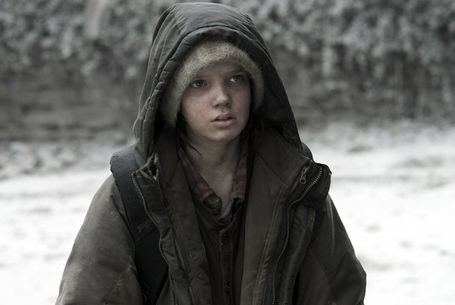The Boy also has moments of fear. Again and again, he begs the man not to go upstairs or open cellar doors out of fear of what maybe there. He also cries a lot in the book, like any child would, and needs his father their to comfort him during this lower times. Although, he can be difficult or unkind towards his father, he threw away the flute given to him by his father who carved it for him. We can say that The Boy can be seen as self-righteous, one example of this was how The Man tells stories to keep their spirits, The Boy is more concerned about the treatment of other people they meet on the road who is worse off then them.
McCarthy also often describes The Boy using religious symbols and languages. At one point, the man describes The Boy's blond head '[g]olden chalice, good house to a god.' The Boy sometimes seems like a divine child who can inspire The Man to goodness. The Boy's gentle nature provides us readers with hope for the future of the story. Though he has only known this savage, post-apocalyptic world, he's still full of kindness and innocence.

Well done for inventing extra work. I've tweeted that people should read this.
ReplyDelete